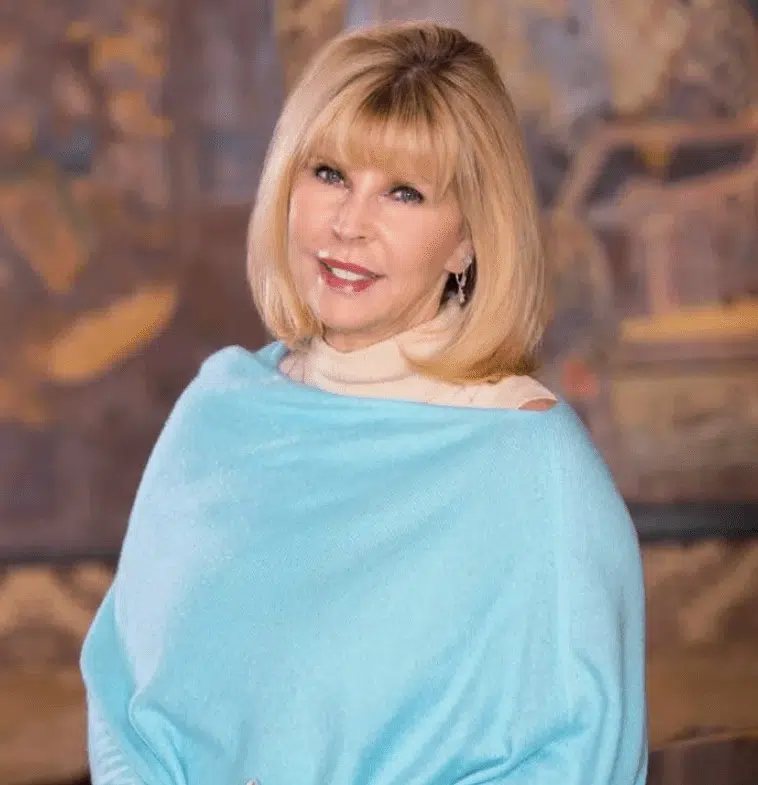
In her NYC psychotherapy practice, Dr. Vivian Diller helps women and men discover how to redefine what it means to be attractive as they age. In the book, Face It: How Women Really Feel as Their Looks Change, which she co-authored with Michele Willens, she reported on her research about the role beauty plays in our lives. She also shared her personal story about her career journey from professional ballet dancer, to Wilhelmina model, to psychologist.
It’s impossible for us to feel the same about ourselves at 30 as we did at 18, she says. And to expect to be able to match what we did at 50 when we’re 70 sets us up for disappointment. A more realistic comparison is what your grandmothers were able to do at your age. With our better health and extended roles, we’re inventing new ways to enjoy life in our 50’s, 60’s and 70’s.
Empowerment of the New Beauty Paradox
 Dr. Diller’s chapter in Leading Women: 20 Influential Women Share their Secrets for Leadership, Business and Life pulls from her research finding, “The New Beauty Paradox.” Our culture has programmed us to want to stay looking young and erase the signs of time, she says. Yet on the flip-side we have our feminist forebears saying if you’re focused on your appearance you’re being superficial. Vivian describes “The Beauty Paradox” as being a balance between the two. We all care how we look, but every one of us has an ah-ha moment when we discover that our experience is showing in our appearance. The only way to resolve that paradox is to move toward a more comfortable perspective of how we feel about our looks.
Dr. Diller’s chapter in Leading Women: 20 Influential Women Share their Secrets for Leadership, Business and Life pulls from her research finding, “The New Beauty Paradox.” Our culture has programmed us to want to stay looking young and erase the signs of time, she says. Yet on the flip-side we have our feminist forebears saying if you’re focused on your appearance you’re being superficial. Vivian describes “The Beauty Paradox” as being a balance between the two. We all care how we look, but every one of us has an ah-ha moment when we discover that our experience is showing in our appearance. The only way to resolve that paradox is to move toward a more comfortable perspective of how we feel about our looks.
Balance Requires Mourning
Role models, like Meryl Streep, are multiplying with the thousands of aging baby boomers. Dr. Diller says that she has found it’s important to mourn the loss of your youthful looks. In fact, she says that there is a period around menopause where mourning the loss of multiple things: loss of children through empty nesting, loss of parents and loss of youth. It’s important to experience that fully so you can move on.
In addition to completing the process of mourning, Dr. Diller has discovered that women who age gracefully and even gratefully have three things in common:
- Their definition of what they think of as attractive changes over time. They don’t get stuck at 18, but see themselves attractive in other ways at 30, 40 and 50.
- The internal voice that speaks to them when they see their reflection has grown kinder. Instead of indulging in self-criticism, they focus on what is good about what they see.
- They balance the way they take care of themselves. They don’t focus on trying to maintain their youthful looks, but they also don’t neglect their appearance and they continue to stay in shape for their age.
“These Are the Best Years of My Life.”
The best years are not the same as the youthful years, but instead can be the years we have now. Appreciation for things has changed with wisdom, and Dr. Diller says that she is grateful to find something she can get better at as she ages. Especially she is thrilled to be helping empower women to feel better about themselves throughout their lives.
Check out her work on her website viviandiller.com, in Huffington Post, Psychology Today and in Leading Women: 20 Influential Women Share Their Secrets to Leadership, Business and Life.
Listen to this conversation to hear more about what she has to say about her work with the beauty and cosmetics industries. She urges them to change their advertising to fit their customers, who are insulted by ads showing women who don’t look like them.

